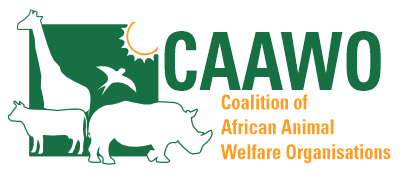Every year, a 10-day festival held in southern China has animal activists up in arms over the thousands of domestic dogs and cats that are slaughtered and served as meals to the region’s residents. The extent of the dog (and cat) meat trade in the surrounding countries is also of huge concern. How can we positively engage with the Asian community without sounding hypocritical?
Last year, a YouTube clip showed a well-spoken South Africa animal rights activist and dog lover making the following impassioned speech about the Yulin festivities in Asia: “Throughout the world, dogs are found in the homes of millions of people. They are animals whose emotional intelligence is akin to that of a seven-year-old child. They aid the deaf [and] the blind; they fight in wars. They support our police and armies. They dig people out of snow and disasters. They provide emotional support to people; they work with farmers and shepherds and guard our homes.”
This year, an animal activist from the same group told media: “I feel we carried our message across. They skin and boil dogs alive because the Chinese believe that if the dog suffers, they taste better. They also set cats alight while they are alive,” she said, adding that a letter of grievances was emailed to the Chinese consulate in South Africa. Internationally, the Duo Duo Project has a petition going on Change.org, entitled “Shut Down the Yulin Dog Meat Festival”, which to date has more than 3.5 million signatures on it.
WHY DOG MEAT?
Two age-old Chinese beliefs are that eating dog meat during the summer months brings luck and good health; while eating black dogs in winter will keep you warm. While animal activists have always been careful to show their respect for different countries and their cultures, they unite in their view that this particular cultural practice – which extends to the live torture and later consumption of domestic dogs and cats – should not be allowed in law; and that children should never witness such atrocities.
THE LAW STEPS IN
According to research undertaken by the BBC’s “Newsbeat”, Taiwan has been the first Asian country to crack down on the practice. It’s new Animal Protection Act is aimed at ensuring that anyone found selling, eating or buying these animals for consumption will face a fine of up to £6 500 (R110 000); while those found guilty of animal cruelty could be liable for a fine of up to £52 000 (R900 000) and a two-year prison sentence.
China is still the biggest culprit, with research revealing annual slaughter figures of around four million cats and roughly 10 million dogs. South Korea is also at fault, with its estimated 17 000 dog farms and gaegogi (dog-meat dishes) appearing commonly on menus; but welfare groups are beginning to have an impact.
In Vietnam, around five million dogs are believed to be slaughtered for eating each year, with the demand leading to an illegal trade from neighbouring Thailand, Cambodia and Laos. An organisation that is lobbying government to end the dog-meat trade, Vietnam’s Asia Canine Protection Alliance, has expressed the concern that eating dog meat is dangerous to humans because it can lead to an increase in harmful illnesses such as rabies. The festival is fortunately starting to face notable protests each year, both from within China as a new generation adopts an increasing number of beloved pets, and from the West where local demonstrations are increasing in number and clout.
According to Tozie Zokufa, director for Regional Coordination for the Coalition of African Animal Welfare Organisations, “The torture of any animal is barbaric and is an abominable act. To think that this happens at a ‘continental’ level, with authorities turning a blind eye, is a very sad state of affairs. We are ready to lend a helping hand to our animal protection friends in Asia, with the aim being to engage with the authorities and seek a lasting solution to this massacre. On the other hand, this atrocity gives us an opportunity to look within and ask ourselves what about chickens, pigs etc. in our own backyards.”




